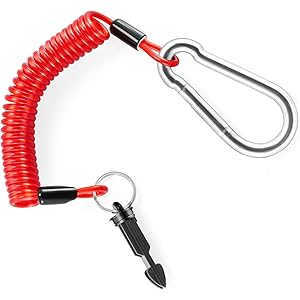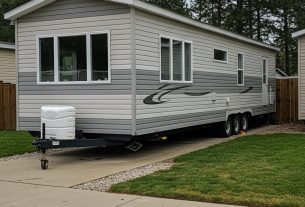As a mobile home owner, I have faced many challenges, but few are as alarming as the unexpected and unpleasant smell of sewage wafting through my living space. If you’ve ever found yourself asking, “Why does my mobile home smell like sewer?” you’re not alone. This issue is more common than you might think, and it’s crucial to address it promptly. In this article, I will explore the reasons behind this foul odor, provide practical solutions, and invite you to share your experiences as we navigate this smelly problem together.
Understanding the Problem: What Causes a Sewer Smell?
The first step in tackling any problem is understanding it. A sewer smell in your mobile home can stem from several sources. Below are the most common reasons I discovered during my research:
- Dry P-Traps: The P-trap is a plumbing fixture designed to hold water and prevent sewer gases from entering your home. If it dries out, which can happen in unused sinks or drains, sewer gases can seep in.
- Clogged Drains: Over time, debris can accumulate in your plumbing system, leading to clogs that can create pressure and release odors.
- Ventilation Issues: Proper ventilation is essential for a healthy plumbing system. If vents are blocked, it can lead to an imbalance that allows gases to escape.
- Leaking Pipes: A leak in your plumbing can lead to stagnant water and, subsequently, a sewer smell.
- Septic System Problems: If your mobile home is on a septic system, issues like a full tank or malfunctioning drain field can cause odors to permeate your home.
Identifying the Source of the Smell
Once I understood the potential causes, I needed to identify the specific source of the smell in my mobile home. Here are some steps I took that you can follow:
- Check the P-Traps: Inspect each sink and drain in your home. If any of them have dried out, simply running water for a few seconds can resolve the issue.
- Inspect for Clogs: Use a plunger or a plumbing snake to clear any noticeable clogs. If the smell persists, it may be time to call a professional plumber.
- Examine Ventilation: Check to see if any vents are blocked by debris or insulation. Clear away any obstructions to ensure proper airflow.
- Look for Leaks: Inspect underneath sinks, around toilets, and near any visible plumbing for signs of leaks or water damage.
- Assess Your Septic System: If you’re on a septic system, check the tank level and consider scheduling a pump-out if it’s been more than three years since your last one.
Preventative Measures for a Fresh Smelling Home
After identifying the source of the smell, I realized the importance of preventative measures to keep my mobile home smelling fresh. Here are some effective strategies I implemented:
- Regular Maintenance: Establish a routine for checking your plumbing system. Look for leaks, clogs, and other issues before they escalate.
- Keep P-Traps Full: Ensure that you regularly run water in all drains, especially those that are seldom used, to keep the P-traps filled.
- Use Drain Cleaners: Monthly use of eco-friendly drain cleaners can help prevent clogs and maintain a clean plumbing system.
- Inspect Your Septic System: Schedule regular inspections and maintenance for your septic system to ensure it’s functioning correctly.
- Air Out Your Home: Open windows and doors regularly to promote airflow and reduce stagnant odors.
Real-Life Experiences: Case Studies of Mobile Home Owners
To provide a broader perspective, I reached out to fellow mobile home owners to learn about their experiences with sewer smells. Here are a couple of case studies that highlight common issues and solutions:
Case Study 1: The Dry P-Trap
Mary, a mobile home owner in Florida, noticed a strong sewer smell coming from her bathroom. After some investigation, she discovered that the P-trap under her rarely used guest bathroom sink had dried out. A simple fix—running water for a few seconds—eliminated the odor completely. Mary emphasized the importance of checking seldom-used areas regularly.
Case Study 2: Septic System Troubles
John, who lives in a rural area, faced a persistent sewer smell that lingered in his kitchen. After several failed attempts to locate the source, he called a septic professional. The issue turned out to be a nearly full septic tank that needed pumping. John learned the importance of regular septic maintenance and now schedules yearly inspections to avoid future problems.
When to Call a Professional
While many sewer smell issues can be resolved with DIY methods, there are times when it’s best to call in a professional. Here are some signs that indicate it’s time to seek expert help:
- Persistent Odors: If the smell continues despite your efforts, it may be a sign of a more serious issue.
- Visible Damage: Water stains or mold growth can indicate a leak that needs professional repair.
- Septic System Issues: If you suspect a problem with your septic system, it’s essential to consult a professional to avoid costly damage.
- Complex Plumbing Problems: If you’re dealing with multiple clogged drains or other plumbing issues, a professional plumber can diagnose and fix the problem more efficiently.
Frequently Asked Questions (FAQ)
1. How can I tell if the smell is coming from my drains or my septic system?
Typically, a sewer smell coming from your drains will be localized in areas with sinks, showers, or toilets. If the smell is more pervasive throughout the home, it could be a septic system issue.
2. What should I do if the sewer smell is strong?
Evacuate the area and ventilate your home immediately. If the smell persists, investigate the source or call a professional.
3. Can I use chemical cleaners to clear clogs?
While chemical drain cleaners can be effective, they should be used sparingly as they can damage pipes over time. Consider using natural alternatives instead.
4. How often should I have my septic system inspected?
It’s recommended to have your septic system inspected every 1-3 years, depending on the size of your tank and the number of people in your household.
Conclusion: Take Action Today!
Experiencing a sewer smell in your mobile home can be distressing, but understanding the causes and solutions can help alleviate the problem. From checking your P-traps to maintaining your septic system, there are numerous steps you can take to ensure your home remains a fresh and welcoming space. I encourage you to share your experiences, tips, and solutions in the comments below. Together, we can foster a community of knowledge and support.
If you found this article helpful, please consider signing up for our newsletter for more insights and tips on mobile home living. Don’t forget to share this article with friends and on your social media platforms to help others who might be facing the same issue!
JUSTTOP 6FT Breakaway Trailer Cable,Heavy Duty Stainless Steel Spring Towing Coiled Wire,Emergency Brake Wire Camper Safety Breakaway Cable with Pin,RV Trailer Accessories
$6.39 (as of November 15, 2025 07:52 GMT -03:00 - More infoProduct prices and availability are accurate as of the date/time indicated and are subject to change. Any price and availability information displayed on [relevant Amazon Site(s), as applicable] at the time of purchase will apply to the purchase of this product.)
Sign up for our newsletter and stay up to date with exclusive news
that can transform your routine!





